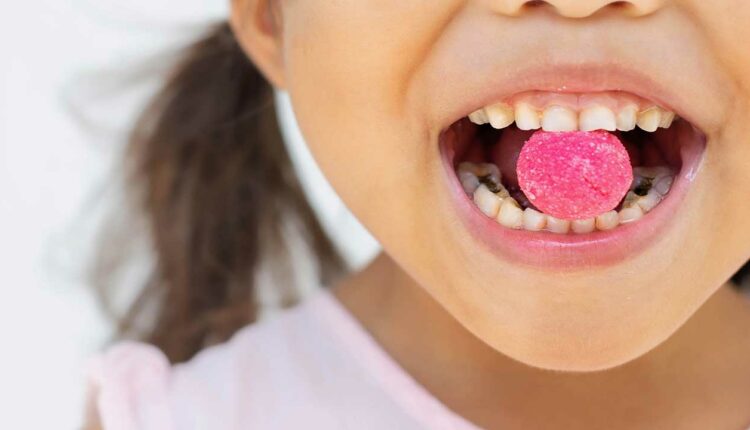 globalmoments / iStock / Getty Images Plus
globalmoments / iStock / Getty Images Plus
Pandemic Has Done a Number on Children’s Oral Health
Study tracks decline in pediatric oral health, due in part to lockdowns and limited access to care.
When left untreated, dental caries can inflict major damage. In fact, should infections develop, the rest of the body can be at risk. So concerned is the American Academy of Pediatric Dentistry about caries gaining a foothold in young teeth that it recommends all children see a dentist within 6 months of the first tooth eruption or by age 1.
But as the country emerges from the COVID-19 pandemic, it is evident that the virus has left its mark.
THE COVID EFFECT
Stay-at-home quarantines over the past couple of years have not only limited—or eliminated—dental office visits and good prophylactic dental care, but all the downtime, especially for children and teenagers, has likely contributed to an overconsumption of sugary snacks.
A recent study found that in 2020, 75% more children were likely to have poor dental health, including a higher risk of bleeding gingiva, than in 2019. In addition, researchers found that the likelihood of children visiting a dentist was 27% lower in 2020 than in the previous year. Such a variation did not exist between 2018 and 2019.1
The data, gleaned from the National Survey of Children’s Health, reflects subjects representing 125,443 households across the nation, in which one child, ages 1 through 17, per household was selected. The study cast a wide net across the demographic and socioeconomic spectrum. It also measured parents’ perception of their child’s dental health, which declined through the period.1
MULTIFACETED ISSUES
The researchers determined that numerous factors accounted for the widespread decline in children’s oral health during the height of the pandemic. Lack of accessible care was certainly one issue, but the authors cite a rise in unemployment as another possible factor.1
Especially early in the pandemic, job loss impacted both income and dental insurance coverage for 6.9 million dependents by June 2020. The study showed that the likelihood of poor dental health was greatest among Hispanic and nonwhite children, those from poor households, and those lacking insurance.1
School closures are cited as another issue. Because most schools moved to remote learning in 2020, school-based programs offered in some schools, such as those pertaining to oral health, ground to a halt. School closures also negatively impacted school-based breakfast and lunch programs. For many students, this likely meant that nutritious meals were less accessible.1
The authors further cite social restrictions and increased time at home as contributing factors. These may have led to changes in healthy habits such as good oral care while also leading to increased sugar consumption. It all adds up to a perfect storm for caries and periodontal disease development.1
GETTING BACK ON TRACK
School attendance and dental office visits are starting to return to normal. But the authors stress the importance of continued monitoring of oral health trends via data collection and countering the effects of the pandemic through policies and oral health campaigns to increase awareness about preventive measures such as water fluoridation and access to dental care.
In addition, the importance of teaching children about good oral healthcare practices remains critical. This is where oral health professionals are invaluable. By educating young patients on the intricacies of brushing and flossing, and good oral hygiene in general, perhaps we can recover ground that’s been lost to the pandemic.
REFERENCE
- Lyu W, Wehby GL. Effects of the COVID-19 pandemic on children’s oral health and oral health care use. J Am Dent Assoc. 2022;153:787-796.

